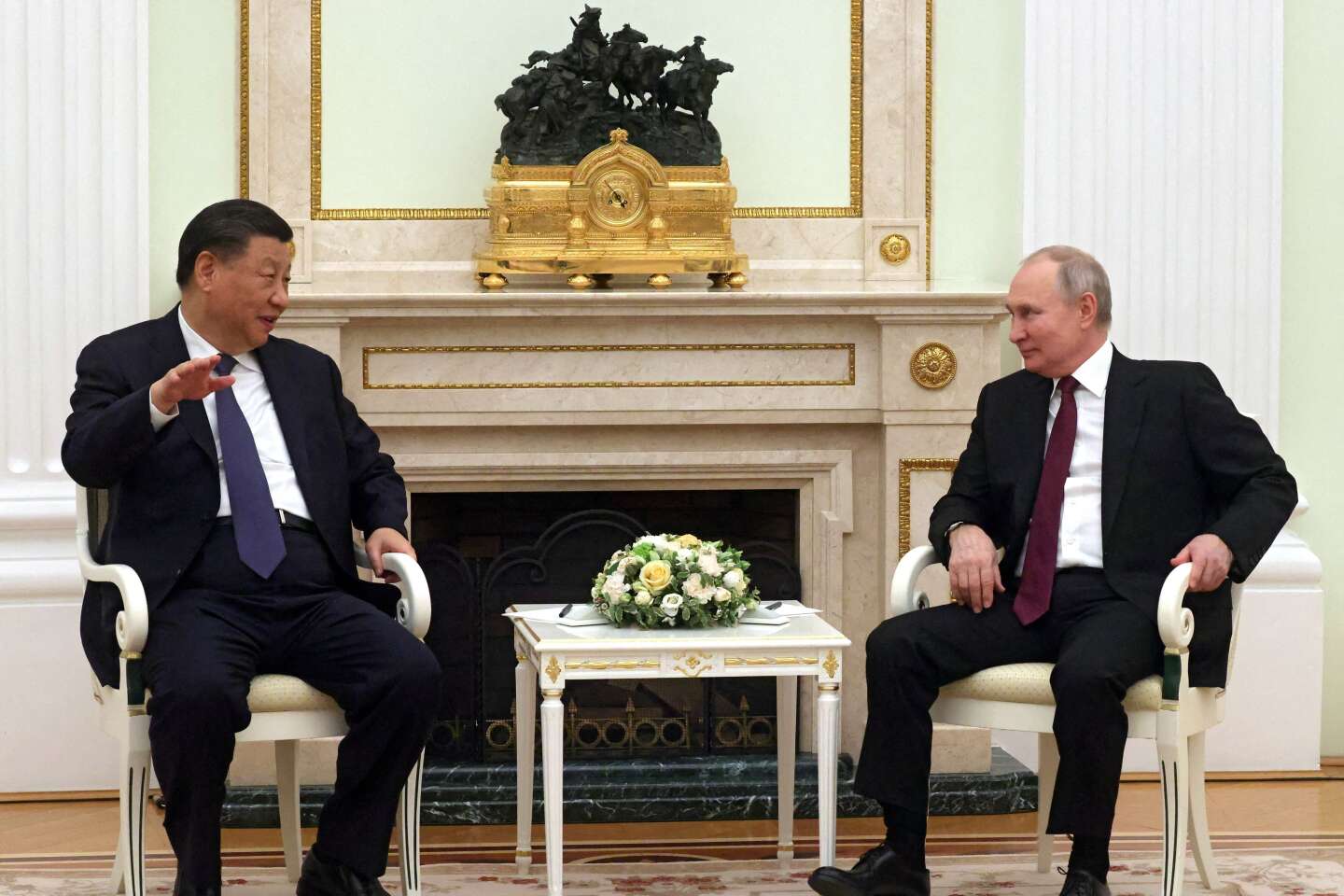


Ahead of German Chancellor Olaf Scholz's visit to China, which came to an end on Wednesday, April 17, and Chinese President Xi Jinping's upcoming trip to Europe, where Emmanuel Macron will receive him in Paris on May 6, the United States has hammered home a message to Europe: Since you have ongoing high-level relations with Beijing, put them to good use to pressure China to stop aiding Russia in its war in Ukraine.
This message, which has been actively echoed in recent weeks by French Foreign Minister Stéphane Séjourné in Beijing, by Americans themselves, and by German Chancellor Olaf Scholz, who did just that on Tuesday, reflects Washington'sconcern about one of the most spectacular geopolitical effects of the war in Ukraine: The strengthening of the China-Russia relationship.
To convince those who may have doubted that this strengthening has had a concrete impact on the course of the war, and that it partly explains the Russian economy's resilience, Washington released previously classified data on April 12: In the last quarter of 2023, for example, China supplied Russia with over 70% of its imports of machine tools used for ballistic missile production. Furthermore, over the whole of 2023, 90% of Russia's microelectronics imports, which are crucial to manufacturing missiles and tanks, came from China.
A major trend
Why this sudden American insistence on the Chinese factor? Washington may have been surprised at the speed with which the Russian industrial sector has managed, despite Western sanctions, to recover and mass-produce an arsenal that has been making a difference on the ground against the struggling Ukrainian forces, which have been slowed down by the sluggish pace of Western supplies. The Kremlin's considerable income from Russian oil imports from China and India is well-known, and this has already compensated for Moscow's loss of the European market. Yet the material aid provided by China, the extent of which had been poorly assessed until now, seems to have played an important role, even if it has not crossed the red line of supplying lethal weapons.
Another explanation is the strengthening of the Russian-Chinese axis, a major trend in the shifting balance of power between the great powers. For the US, which measures everything with regard to the rise of Chinese power, this is not a trend to be overlooked: After all, the element that cements the China-Russia relationship is common opposition to American domination. This rapprochement is not entirely new: Moscow turned to China back in 2014, when relations between Russia and Western countries had cooled following the annexation of Crimea, with a first wave of sanctions. Since then, trade between China and Russia has increased significantly. Nevertheless, the European Union remained an important economic partner for Moscow – until 2022. Once the full-scale war against Ukraine was unleashed, Russia had to completely pivot towards China.
You have 47.2% of this article left to read. The rest is for subscribers only.
